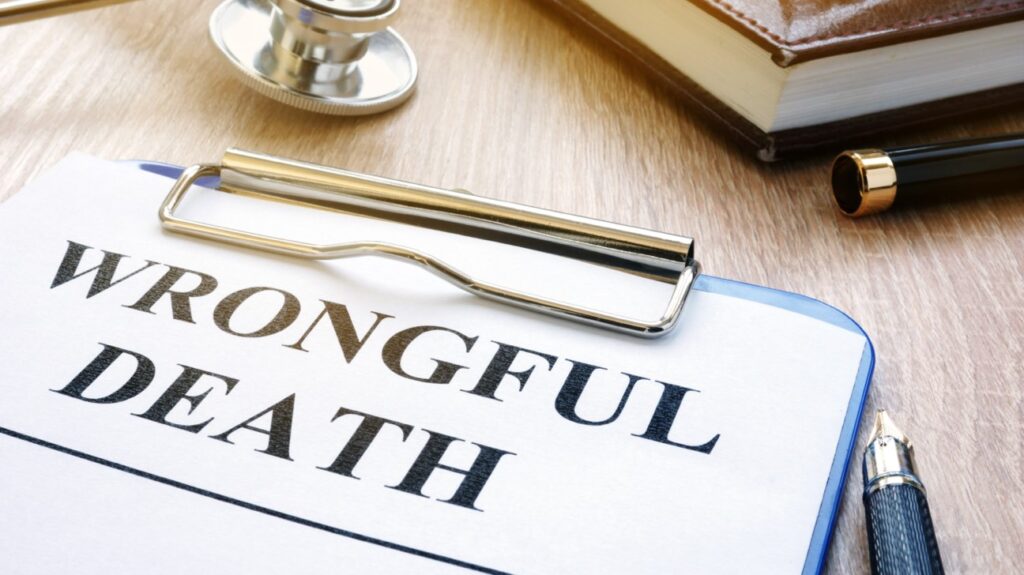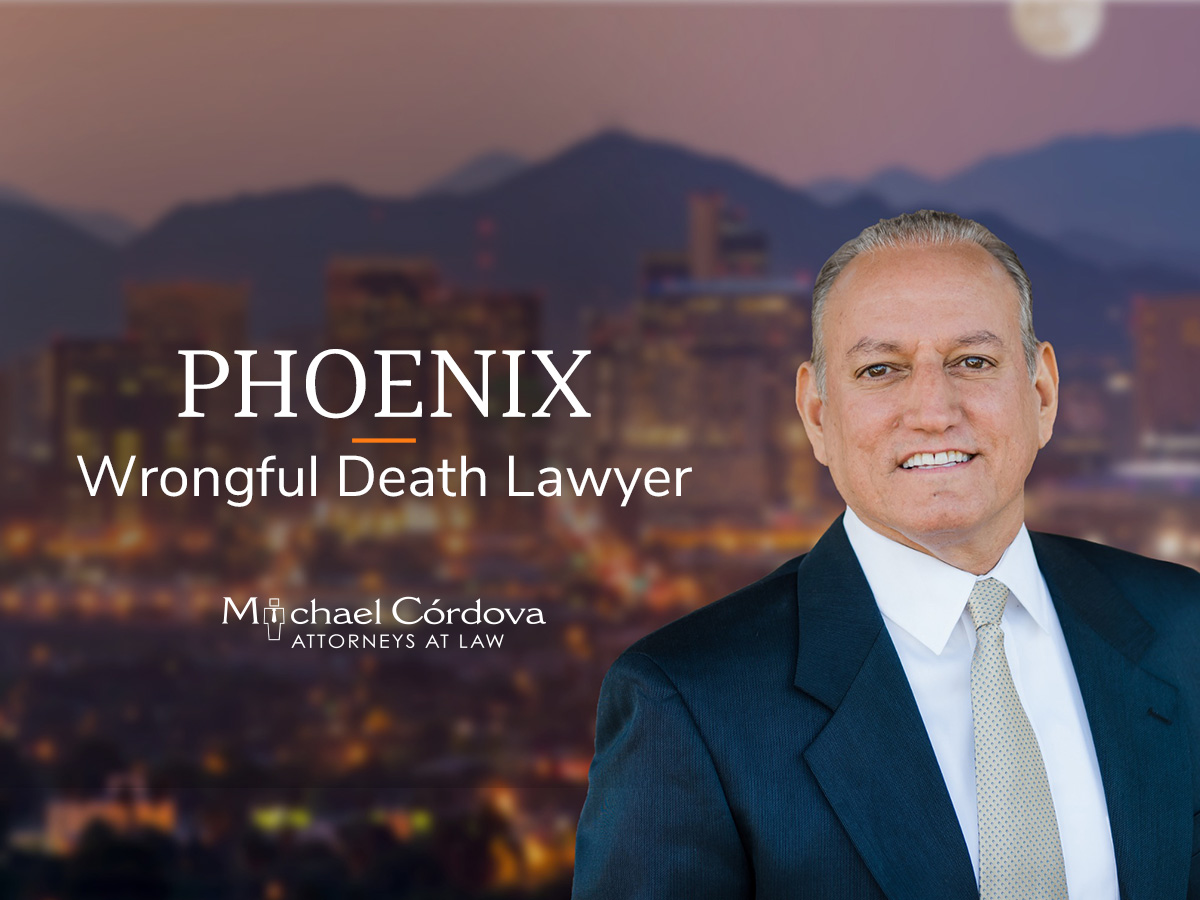
Overview of Wrongful Death Claims

Wrongful death claims are civil lawsuits brought by the family members of a person who has died due to the negligence or intentional acts of another party. These claims allow the family to seek compensation for their loss, including damages for pain and suffering, lost income, and funeral expenses.
The legal basis for wrongful death claims varies from state to state, but generally, they are based on the principle that the person who caused the death should be held responsible for the harm they have caused. In most cases, wrongful death claims are filed against individuals, but they can also be filed against companies, government entities, or other organizations.
Legal Elements of Wrongful Death
To establish a wrongful death claim, several legal elements must be proven. These elements include:
- The death of a person;
- The death was caused by the wrongful act or neglect of another person or entity (the defendant);
- The survivors of the deceased have suffered damages as a result of the death.
Negligence
Negligence is a legal concept that refers to the failure to exercise reasonable care in one’s actions, resulting in harm to another person. In the context of wrongful death claims, negligence can be established by showing that the defendant:
- Owed a duty of care to the deceased;
- Breached that duty of care by acting or failing to act in a reasonable manner;
- The breach of duty was the actual and proximate cause of the deceased’s death.
Causation
Causation is a key element in wrongful death claims. The plaintiff must prove that the defendant’s negligence was the actual and proximate cause of the deceased’s death. This means that the defendant’s actions or omissions must have been a substantial factor in bringing about the death.
Proximate cause is often determined by considering whether the defendant’s actions were foreseeable and whether there was an unbroken chain of causation between the defendant’s actions and the deceased’s death.
Damages in Wrongful Death Cases
Damages in wrongful death cases are designed to compensate the family of the deceased for their loss. These damages can include both economic and non-economic losses.
Compensatory Damages
Compensatory damages are intended to reimburse the family for their financial losses, such as:
* Lost income
* Loss of benefits
* Funeral expenses
* Medical expenses
* Loss of companionship and support
Punitive Damages
Punitive damages are awarded to punish the defendant for their wrongful conduct and to deter others from engaging in similar conduct. These damages are not intended to compensate the family for their loss, but rather to send a message to the defendant and the community.
Factors Affecting Damages
The amount of damages awarded in a wrongful death case can vary depending on a number of factors, including:
* The severity of the defendant’s conduct
* The financial impact of the death on the family
* The age and health of the deceased
* The relationship between the deceased and the family
Wrongful Death Lawyers
Wrongful death lawyers are legal professionals who represent plaintiffs or defendants in cases where a person’s death is alleged to have been caused by the wrongful act or negligence of another person or entity. They specialize in civil lawsuits seeking compensation for the loss of life and related damages.
Role of Wrongful Death Lawyers
- Represent plaintiffs, such as surviving family members or the estate of the deceased, in filing and pursuing legal claims.
- Represent defendants, such as individuals, companies, or government agencies, in defending against wrongful death lawsuits.
- Investigate the circumstances of the death, gather evidence, and build a strong case for their clients.
- Negotiate settlements or proceed to trial to obtain fair compensation for the plaintiffs.
- Provide legal advice and guidance to clients throughout the legal process.
Qualities and Skills of Effective Wrongful Death Lawyers
- Strong legal knowledge and experience in wrongful death law.
- Excellent communication and negotiation skills.
- Empathy and compassion for clients who have suffered a loss.
- Attention to detail and thoroughness in case preparation.
- Ability to handle complex legal issues and navigate the legal system effectively.
Tips for Choosing the Right Wrongful Death Lawyer
- Look for lawyers with a proven track record in wrongful death cases.
- Read reviews and testimonials from past clients.
- Schedule consultations with multiple lawyers to find one who you feel comfortable with.
- Consider the lawyer’s fees and payment structure.
- Trust your instincts and choose a lawyer who you believe will represent your interests effectively.
Wrongful Death Lawsuits
Wrongful death lawsuits are civil actions brought by the family members of a person who has died due to the negligence or intentional misconduct of another party. These lawsuits aim to seek compensation for the financial and emotional losses suffered by the family as a result of the wrongful death.
The process of filing a wrongful death lawsuit typically involves the following steps:
Filing a Complaint
The first step in filing a wrongful death lawsuit is to file a complaint with the court. The complaint should include the names of the plaintiffs (the family members bringing the lawsuit), the name of the defendant (the party being sued), and a detailed description of the facts of the case.
Discovery
Once the complaint has been filed, the parties will enter the discovery phase. During discovery, the parties exchange information about the case, such as witness statements, medical records, and financial documents. This process helps both parties prepare for trial.
Trial
If the parties cannot reach a settlement during discovery, the case will proceed to trial. At trial, the plaintiffs will present their evidence to prove that the defendant was negligent or intentionally caused the death of their loved one. The defendant will then present their evidence to defend against the claims. The jury will then decide whether the defendant is liable for the wrongful death and, if so, what damages should be awarded to the plaintiffs.
Wrongful death lawsuits can be complex and challenging. The family members of the deceased are often grieving and may not be in a position to handle the legal process on their own. It is important for families to seek the advice of an experienced wrongful death lawyer who can guide them through the process and help them obtain the compensation they deserve.
Case Studies and Examples

Numerous wrongful death lawsuits have been successfully resolved, setting precedents and shaping the legal landscape. Here are a few notable examples:
Landmark Case: Roe v. Wade
The Roe v. Wade case, decided by the U.S. Supreme Court in 1973, is a landmark wrongful death case. It established the legal right to abortion, holding that the Due Process Clause of the Fourteenth Amendment protects a woman’s right to choose whether to terminate her pregnancy.
Workplace Fatality: Ford Motor Company v. McCorkle
In Ford Motor Company v. McCorkle (1984), the Supreme Court ruled that employers can be held liable for wrongful death under the Jones Act when a seaman dies in a workplace accident. This case expanded the scope of liability for employers in maritime cases.
Medical Malpractice: Estate of DeFilippo v. Munroe Regional Medical Center
The Estate of DeFilippo v. Munroe Regional Medical Center (2017) is a wrongful death case involving medical malpractice. The plaintiff alleged that the hospital’s negligence caused the patient’s death. The case highlights the importance of proving causation and damages in medical malpractice cases.
Wrongful Death Resources

In the aftermath of a wrongful death, navigating the legal system and coping with the emotional toll can be overwhelming. Fortunately, there are numerous resources available to provide support and guidance during this difficult time.
Support Groups
Support groups offer a safe and compassionate space for individuals and families to connect with others who have experienced similar losses. Sharing experiences, offering emotional support, and providing practical advice can help alleviate the feelings of isolation and grief.
Legal Aid Organizations
Legal aid organizations provide free or low-cost legal assistance to individuals and families who cannot afford to hire a private attorney. These organizations can help navigate the legal process, provide legal advice, and represent clients in court.
Other Resources
In addition to support groups and legal aid organizations, other resources can provide assistance during this challenging time:
– Grief counselors can help individuals and families process their emotions and develop coping mechanisms.
– Financial advisors can provide guidance on managing financial matters related to the loss of a loved one.
– Community centers often offer support services, such as counseling, support groups, and childcare.
– Online resources provide information and support for individuals and families coping with wrongful death.
Seeking professional help and support is crucial for navigating the legal process and coping with the emotional trauma of wrongful death. These resources can provide invaluable guidance, support, and a sense of community during this difficult time.





